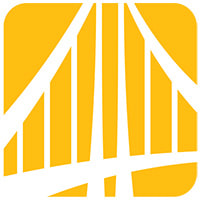Introducing the Medbridge Digital Health Academy
March 26, 2024
4 min. read

Digital care has the potential to revolutionize the way care is delivered, but even positive changes can be difficult without the right plan and resources in place.
That's why we're excited to introduce our Digital Health Academy, an expansion of our content library that includes all the digital health education and training needed to prepare your entire organization to effectively guide more patients to better health outcomes more quickly using digital health tools. The Digital Health Academy has everything you need to get your clinicians excited about digital care and develop the knowledge and skills to effectively put it into practice.
Why is it important to have a Digital Health Academy?
The way MSK care is currently managed in the U.S. has led to several significant problems—in the current model, clinicians cannot keep up with the high volume of MSK patients, and outcomes aren't keeping up with spending. Digital care tools help manage these high volumes to reduce costs and improve outcomes, but they are currently underutilized. A key contributor to this is low clinician adoption and acceptance of the technology.1 While organizations are interested in and investing in using digital care, their clinicians are still not using them for various reasons:
Misconceptions about the use of digital care tools. Nearly 70 percent of the surveyed physiotherapists were not convinced that remote physiotherapy could be used as an additional treatment approach after COVID-19 restrictions ended.2
Low digital health literacy. Clinicians implementing a digital care tool cited lack of familiarity and lack of confidence as barriers to utilization.3
Digital care tools are perceived as difficult to use and do not fit into existing workflows. Physiotherapists cited the time it took to build personal exercise programs and maintain them as patients progressed as a concern when using digital care tools.4
Limited training opportunities: Some reviews highlighted that without training, healthcare providers tend to feel low self-efficacy when utilizing any digital health technologies, resulting in negative attitudes toward these technologies.5
While in-person, hands on treatment is highly effective, it isn't always necessary for lower acuity MSK patients. Applying a "one-size-fits-all" approach to MSK care results in longer wait times for higher acuity MSK patients that need that level of care, patients churning out of organizations, and lost potential revenue that could have been captured with the efficiency of digital care.
The resources included in the Digital Health Academy can help combat that churn by directly addressing clinician barriers to adoption, ultimately increasing utilization of digital care at your organization.
How does the Digital Health Academy combat these challenges?
By building a training program with these courses and assigning it to your staff via Knowledge Tracks, you can empower your staff to adopt digital care tools more quickly and effectively, retain more patients, and reduce your costs.
Were using our years of experience creating engaging digital health education and training to provide you with a high quality offering to assign to your staff. We've also partnered with industry leaders like Dawn Clifford, PhD, RD; Ari Ginsburg, PT, DPT, MSIOP; and Craig Phifer, PT, MHA, to bring their expertise to these training modules.
The Digital Health Academy is designed to be flexible enough to meet you and your organization wherever you are. We've done this by creating different learning tracks that fit into different parts of your digital care journey:
Digital Care Foundations: For clinicians who are new to your organization or just new to digital care, these short microlearning courses will help providers understand what digital care is, how it benefits their patients, and train them to use these new technologies.
Tips, Tricks, and Monthly Challenges: If your staff is new to digital care, it will take more than just an initial training to get them onboard. Change will be most successful if you're reinforcing those habits over time, and we've created short microlearning modules you can assign to reinforce the new care models.
Advanced Training and Certificates: Staff who are drawn to or excel in digital care can further upskill with our advanced training programs. These longer certificate programs provide an opportunity for staff to build their digital health proficiency while earning CEU credit.
Medbridge is your partner as you embrace the opportunities that come with digital care. Start with Medbridge digital health courses today and thrive in digital care tomorrow with the Digital Health Academy.






